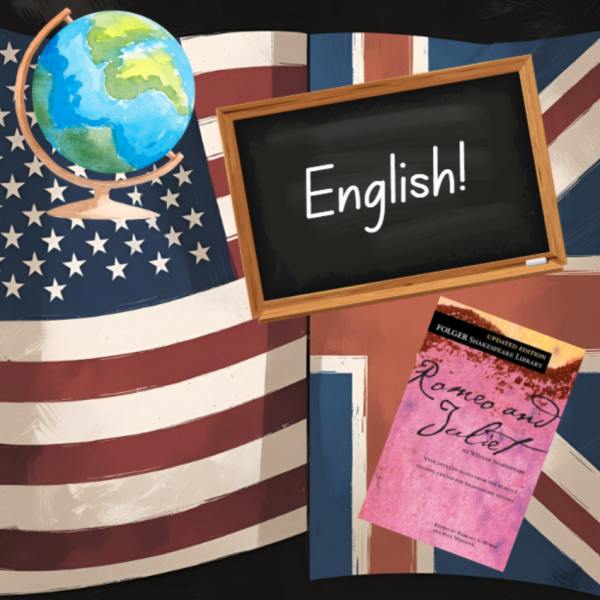New Study Finds Link Between Summer Reading and Negative Health Effects
June 7, 2019
A recent study from the University of Pennsylvania found that at least 76% of summer reading assignments contain a potentially harmful number of pages. Frances E. Jensen, chair of the Department of Neurology, released a statement last Thursday in which she explains her team’s findings: “Reading and processing information is known to create new “cells” in the student’s brains. At this time, we are unsure of the effects that these new cells might have.” Jensen hypothesizes that overreading and the creation of new cells in the brain may cause a build up of pressure between the primary motor cortex and the central sulcus. To minimize the amount of overflow brain cells exiting the body through one’s ears and eliminate any cases of Exploding Head Syndrome (EHS), public health warnings urge students to avoid reading this summer at all costs.
According to this group of researchers, words are also dangerous to students’ health. “Words are similar in many ways to molecular compounds,” says Jensen. “Letters are like elements, and, if used improperly, create sounds and ideas that pose a risk to students’ well-being.” Traditionally, organizations regulated the production and implementation of words; however, the growing size of the dictionary makes it difficult for officials to identify and censor dangerous spellings or grammar inconsistent with MLA 8 guidelines. Additionally, in the new age of technology and online dictionaries, the distribution of words becomes increasingly complex to regulate as authors more frequently turn to shady black market sources like the Merriam Webster Dictionary. If these words are then mixed in certain ways, such as in complex compound sentences, the US Department of Education warns that students may experience side effects such as confusion and frustration. For this reason, Jensen and her team propose that all words in summer reading assignments are limited to less than or equal to five letters, with a strict restriction on words that might be hard to pronounce, and that these words only form simple sentences.
The problems with summer reading extend beyond just the students: “With the amount of kids that have processing disorders today, distributing summer reading assignments becomes a nightmare for teachers,” Jensen writes. However, she goes on to warn people about the danger of processing preorders, which allow students to order processing disorders off of the internet months before the school year starts. Starting at just $14.99 on online retailers like Amazon and College Board, processing preorders are becoming increasingly more accessible to all students. Depending on the type of the preorder, students are able to score record low word per page (WPP) and page per book (PPB) requirements.
While students rejoice, parents across the greater portion of northwestern Pennsylvania find this new report to be much more than a minor annoyance. “First the FDA prohibits the sales of all tobacco products and JUUL to minors”, complains bigGrump101 of Lake Erie, Pa, in his online blog. “Now, with the new limits on summer reading, what does the government expect children to do throughout the summer? The government has become purely egalitarianistic, which is the number one reason I identify as a member of the Democratic-Republican party.”
Jensen and her team of scientists recently explained to the press that there is no conflict of interest, as they would want nothing more than to see their children struggle through Brave New World or The Outsiders this summer. Jensen’s heritage from the ancient Kerguelen Islands most likely influenced her report, however, as she repeatedly referenced traditional methods of storytelling. On page 435 of her findings, for example, Jensen writes that “village elders are able to provide students with the same knowledge they would find in any summer reading book, however without the words or pages. I highly recommend village myths or legends as an alternative to books.” In towns that don’t have village elders, they can be imported from indigenous tribes around the globe.
These scientists also warned that without a quality pair of bifocals and a 100W LED pocket flashlight, readers’ eyes will be in serious danger. As with any dangerous profession, proper equipment is essential: “Just as those who work at Tyson chicken slaughterhouses are required to use safety gear around the machinery, those who read over the summer must take the necessary precautions to prevent any long-term damage to their brains and eyes,” advises school nurse Maureen Lerario. Lerario later revised her statement to include that Tyson chicken slaughterhouses do not require their employees to follow any sort of safety guidelines, but insists that this analogy holds true because the students at Radnor are not undocumented immigrants or chickens. While it may be difficult to obtain the proper equipment, DIY home bifocal kits work too, and eBay sells flashlights. Despite the difficulty of finding bifocals, school administration does not advise students to mug Benjamin Franklin if they where to see him in Philadelphia and steal his pair.
Upon reading Jensen’s report, the Teacher’s Union only wishes that this data would have been presented when they went to school, before they suffered from the consequences of overreading, or that some students would be intellectual enough to want to read on their own.
*This article has been approved by the Committee on the Safety of Reading Assignments.







